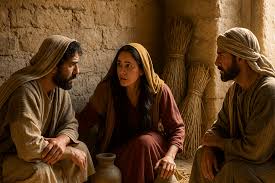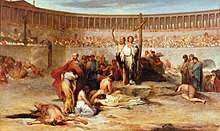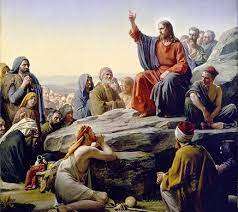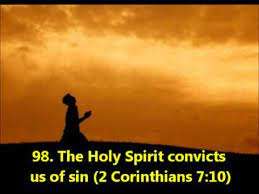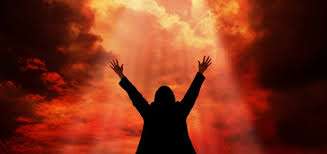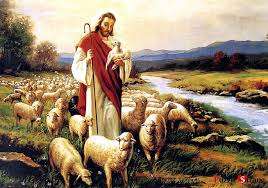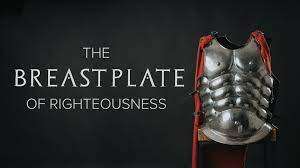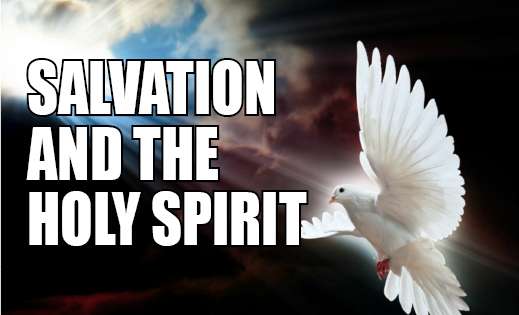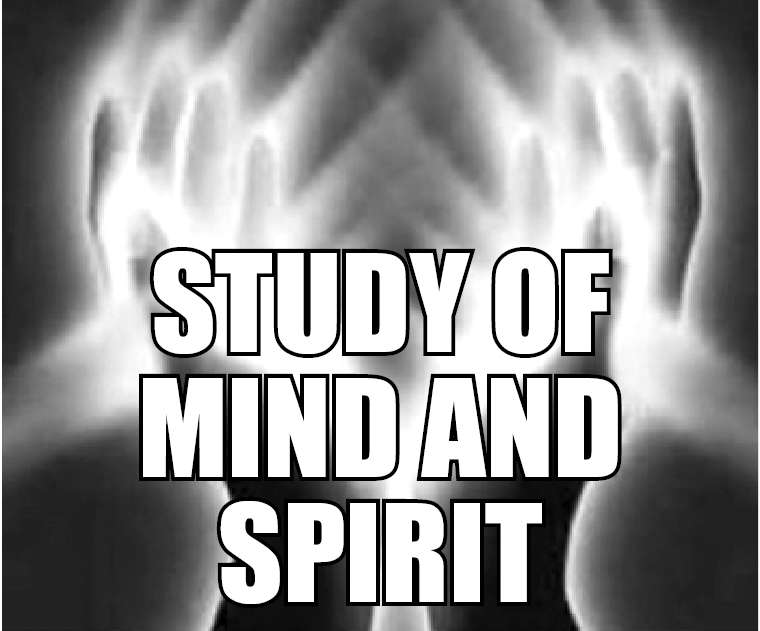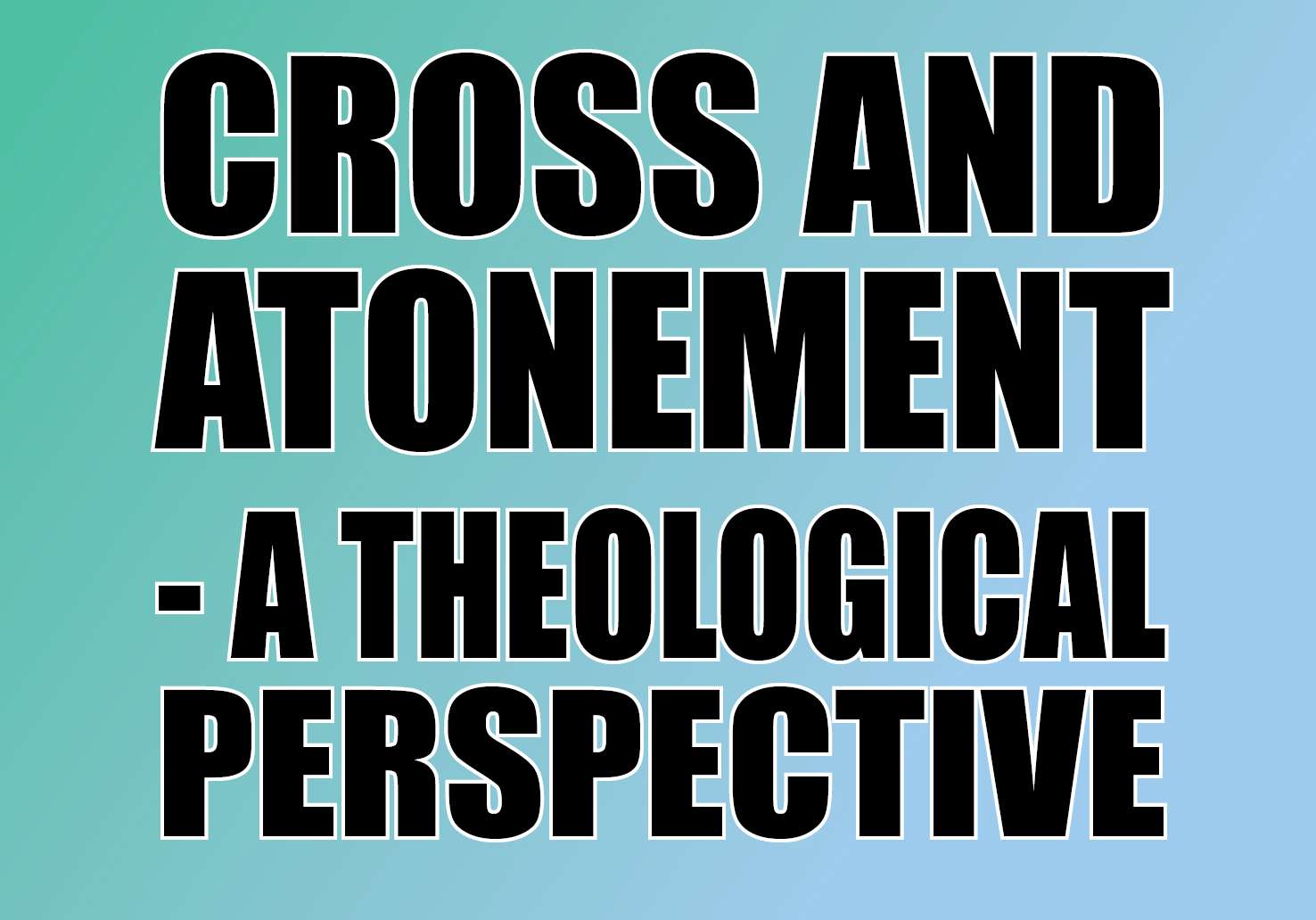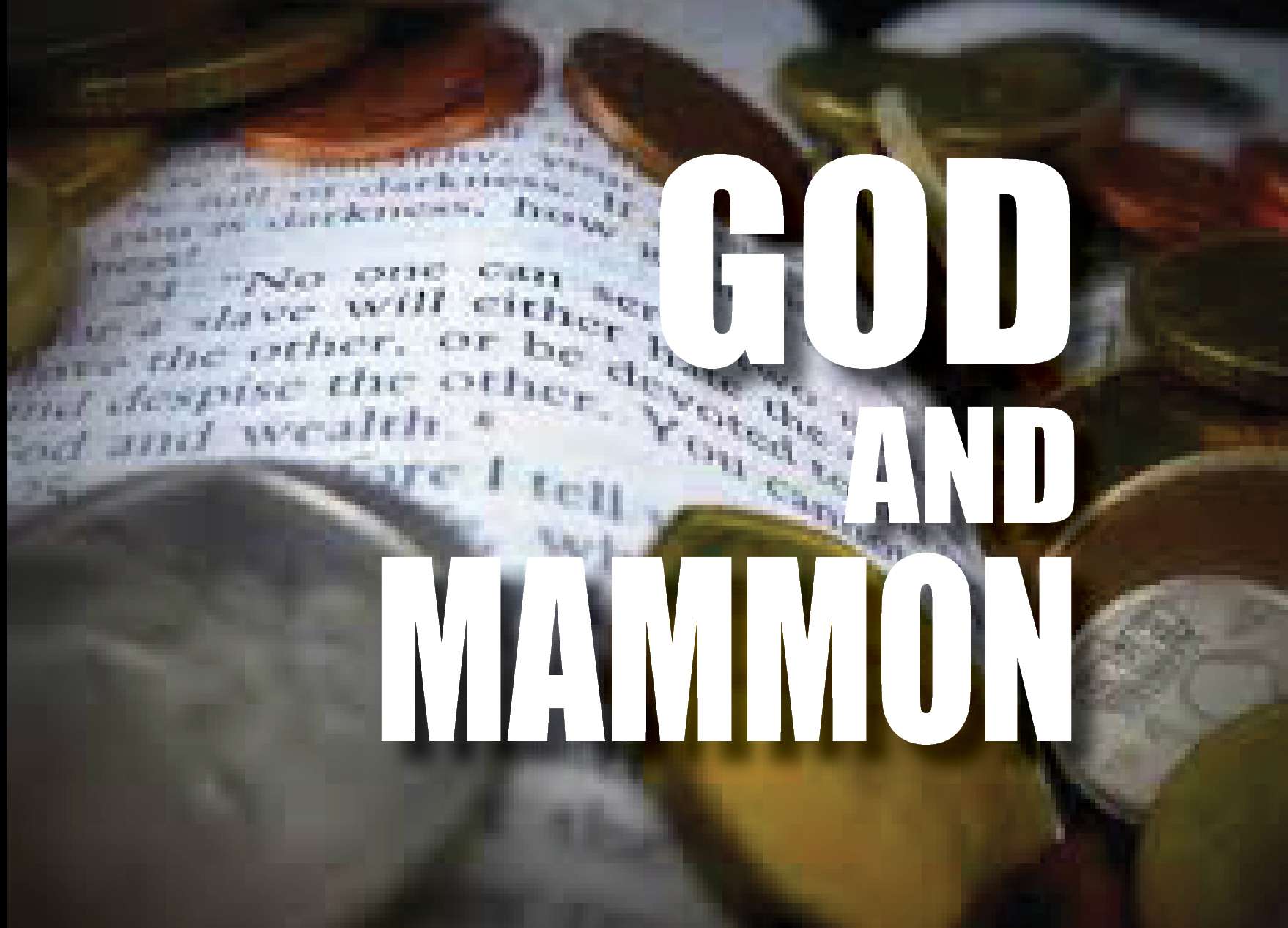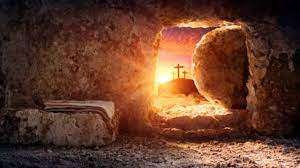

Resurrection and Regeneration
Dr. Domenic Marbaniang
“For God so loved the world that He gave His only begotten Son, that whoever believes in Him should not perish but have everlasting life.” (John 3:16)
Jesus’ conversation with Nicodemus in John 3 stands out as a simple but extremely profound and central discussion on the meaning of Christian salvation. The climax of the conversation is reached in John 3:16, a scripture verse that almost every believing Christian is supposed to know by heart. Of course, the full gist of John 3:16 can only be understood in context of Jesus’ conversation with Nicodemus in the whole chapter.
Nicodemus was a Pharisee who believed in the resurrection of the dead. As a Pharisee and a member of the ruling Jewish council (John 3:1), he obviously disagreed with the Sadducees who believed that there were no angels, no spirit, and no resurrection (Acts 23:8). But he did have his questions like everyone else and came to Jesus one night. He said to Jesus, “Rabbi, we know that you are a teacher who has come from God. For no one could perform the miraculous signs that you do unless God is with him.”It was a simple claim with a valid reason. Notice that he does not say, “I know” but “we know” signifying that there were other Pharisees who alsounderstood that Jesus is from God because of the kind of miracles He performed. Jesus’ reply to Nicodemus was startling:
Jesus answered and said to him, “Most assuredly, I say to you, unless one is born again, he cannot see the kingdom of God.” (John 3:3)
Why did He say that? What had that to do with what Nicodemus just said?To understand that we need to first look at what the Pharisees really believed about salvation and the resurrection from the dead.
The last chapter of the Tractate Sanhedrin (a Jewish legal commentary) gives us some idea about the beliefs of the Pharisees regarding the resurrection. The views in the Sanhedrin may be summarized as follows:
1. All Jews, even sinners executed by death-penalty, have a share in the World-to-Come (resurrection); but the Kingdom of God is shut to three kinds of unbelievers: those who do not believe in the resurrection of the dead, those who do not believe in the divine origin of the Mosaic Law (Torah), and epicureans (hedonists or materialists who go after pleasure and despise godly things).
2. God promised to the Patriarchs to give to them the land of Canaan (Exodus 6:4). They are now dead; however, in the future they will come to life and inherit the land.
3. Deuteronomy 31:6 promises to Moses: “you shall lie with your fathers and arise; this people will go astray”. The verse is a promise of resurrection to Moses.
4. Queen Cleopatra had a question for Rabbi Meir: Will the dead arise naked or clothed? Rabbi Meir answered: “If wheat, which is buried naked, meaning that the kernel is sown without the chaff, emerges with several garments of chaff, all the more so will the righteous, who are buried with their garments, arise with their garments.”
5. God, the Holy One, will raise them from the dead on the day of judgement. He will bring the soul (heavenly) and cast it back into the body (earthly) for judgment.
6. In the resurrection, the dead will arise with their defects (lame as lame, blind as blind, Jeremiah 31:7,8), but they will then be healed (the lame will leap, the mute will sing, Isaiah 35:6).
7. The Jews will live forever after resurrection (Isaiah 25:8), but gentiles will ultimately die after an extremely long life (Isaiah 65:20).
8. In the days of the Messiah, the sun and moon will shine brightly (Isaiah 30:26); but in the World-to-Come, the only light will be the light of God (Isaiah 24:23).
9. The coming of the Messiah will be preceded by seven years of tribulation, “the Sabbatical cycle” – ofdrought, famine, and great famine (Torah forgotten); then, of plenty, great plenty (Torah studies restored), heavenly voices, and finally the war of God and Magog.
10. According to the School of Eliyahu, the coming of the Messiah should happen at the end of the 2000 years of Torah(the Jews believed it was around third century when the Mishnaic age or age of Oral Torah ended). The commentators note that the Messiah had not yet appeared because of their sins.The 6000 years of world history was divided into 2000 years of chaos, 2000 years of Torah (from Abraham to the Messiah), and 2000 years of Messiah.
We do not exactly know which of these beliefs were also held by Nicodemus; however, we can be certain that he believed in the resurrection and that he may have also been expecting (along with many others) the Messiah to appear. People had already been very expectant and wondering in their hearts if John was the Messiah (Luke 3:15). However, John did not perform any miracles, but Jesus did. So, one can understand why as a ruler of the Jews Nicodemus would be curious to personally know more about Jesus. And Jesus did reveal to him the truth of who He was.
Jesus began by saying that one cannot see the kingdom of God unless one is born again (John 3:3). Nicodemus immediately responded with a question, “How can a man be born when he is old? Can he enter a second time into his mother’s womb and be born?”Nicodemus here is thinking in terms of physical birth or rebirth. The Pharisees, unlike modern day Kabbalah Jews, did not believe in reincarnation (punarjanma) but in the resurrection. So, the use of the word “born again” might have startled Nicodemus. Of course, the concept of socio-religious rebirth was not new to Jews.The Sanhedrin mentions that Jewish law regarded a convert to Judaism as reborn. However, this concept of regeneration had its complications. For instance, it was believed that since a convert was reborn, all his previous family ties were to be disregarded. However, incest laws did apply to him regarding his previous family ties. But Jesus was not talking about this sort of socio-religious conversion that merely thought in terms of socio-physical relationships. He said:
“Most assuredly, I say to you, unless one is born of water and the Spirit, he cannot enter the kingdom of God. That which is born of the flesh is flesh, and that which is born of the Spirit is spirit. Do not marvel that I said to you, ‘You must be born again.’ The wind blows where it wishes, and you hear the sound of it, but cannot tell where it comes from and where it goes. So is everyone who is born of the Spirit.” (John 3:5-8)
Jesus explains that He is not talking about physical birth by water and blood, but of spiritual birth of water and the Spirit. The Jews were obsessed with genealogies and the bloodline, but Jesus speaks here of being born of the Spirit. Unless one was born of the Spirit, one cannot see the kingdom of God. Later Paul would write:
“…flesh and blood cannot inherit the kingdom of God, nor does the perishable inherit the imperishable (1Corinthians 15:50).
The Jewish practice of genealogy was only valid until the Messiah, the Last Adam (1Corinthians 15:45). That is the reason why there is not genealogical significance beyond the Gospels; Luke’s genealogy from Adam to Jesus is the last one. In the age of the Church, genealogical obsession is discouraged (1 Timothy 1:4; Titus 3:9) as it has no significance for the believer who is born, “not of blood, nor of the will of the flesh, nor of the will of man, but of God” (John 1:13). Any “believer” who boasts of family lineage, caste, or class is terribly blinded about his spiritual identity in Christ and so searches frantically for his genealogical roots and prides in an identity found therein. But the illuminated believer knows that being born of the Spirit, he is like the wind of which one cannot tell “where it comes from and where it goes.” The most beautiful part of the Gospel story for the first century Christians was that Jewish lineage did not matter; even the gentiles could be born of the Spirit and be children of God.
Nicodemus wonders how these things can be, and Jesus presents to him the great stumbling block of the Gospel – the Cross. Christ is the true Witness, the Son of Man who descended from heaven, who will be liftedupas Moses lifted up the serpent in the wilderness, the light of the world, so that whoever comes to Him and believes in Him should not perish in sins but inherit eternal lifeand the kingdom of God (John 3:11-18). As the Last Adam, He puts an end to the genealogy of sin through His death but rises again, vanquishing death, “the Lord from heaven,”“life-giving spirit,”“the Second Man,”“the heavenly” (1Corinthians 15:45-49).
By faith in Christ through the Spirit we are baptized into Christ by the Spirit and made to drink into one Spirit (1Corinthians 12:3,13; Galatians 3:2). Thus, by faith in Christ’s Word, we are“born again, not of corruptible seed but incorruptible, through the word of God which lives and abides forever” (1Peter 1:23). We are raised up together and made to sit together in the heavenly places in Christ Jesus so that we walk according to the Spirit of Christ, fulfilling the desires of the Spirit (Ephesians 2:6; Galatians 5:16). We are delivered from the power of darkness and transferred into the Kingdom of the Beloved Son (Colossians 1:13). We do not walk according to the spirit that works in the children of disobedience in the lusts of the flesh but are led by the Spirit of Christ as children of God knowing and doing the will of God (Ephesians 2:2,3;5:17,18; Galatians 5:16-25; Romans 8:14). Through the Spirit we “groan inwardly as we wait eagerly for our adoption to sonship, the redemption of our bodies” because we are born again, we are the children of God (Romans 8:23).
“The Spirit himself testifies with our spirit that we are God’s children. Now if we are children, then we are heirs—heirs of God and co-heirs with Christ, if indeed we share in his sufferings in order that we may also share in his glory.” (Romans 8:16,17)
It is, however, important to always remember that this work of regeneration is a work of the Spirit, of grace, and not of any human physical action. The Galatian and Colossian Christians began to forget this truth and were becoming deluded by physical practices such as circumcision and harsh physical regulations(Galatians 3; Colossians 2). None of these regenerates us. The only point of connection between us and Christ is His Holy Spirit in us by whom and in whom we live.
For you died, and your life is now hidden with Christ in God. When Christ, who is your life, appears, then you also will appear with him in glory. (Colossians 3:3-4)

